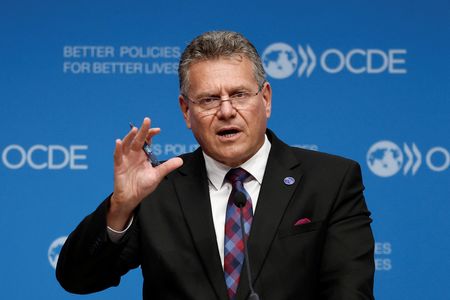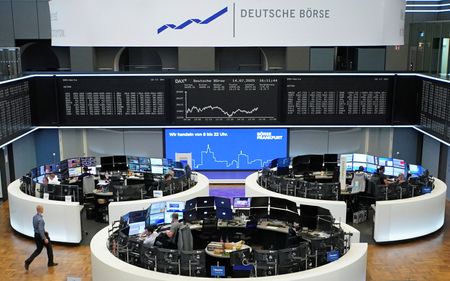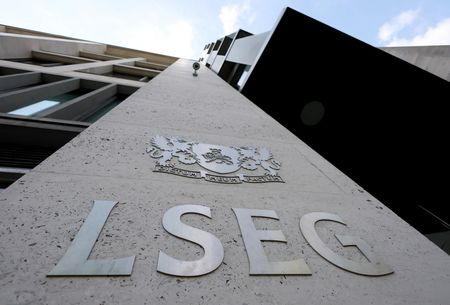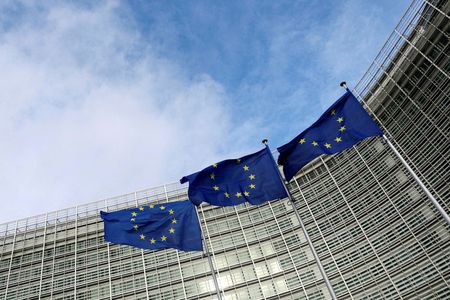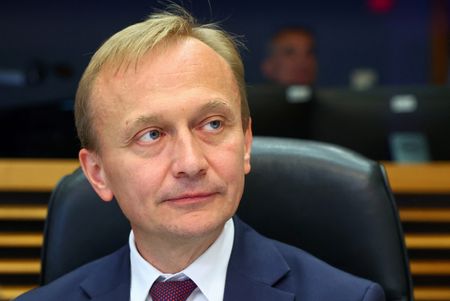BRUSSELS/BERLIN (Reuters) -EU trade chief Maros Sefcovic headed to Washington on Wednesday for tariff talks, an EU spokesperson told Reuters, adding that he will meet U.S. Commerce Secretary Howard Lutnick and Trade Representative Jamieson Greer.
President Donald Trump has threatened a 30% tariff on imports from the EU from August 1, a level Europe says is unacceptable and would end normal trade between two of the world’s largest markets.
ASML, the world’s biggest supplier of computer chip-making equipment, warned on Wednesday that uncertainty in tariff negotiations is spurring chipmakers in the U.S. to delay finalising investments, clouding its outlook for the full year. Its shares sank as much as 7.3% in early trading.
“Trump’s tariffs have only losers,” German Finance Minister Lars Klingbeil told a press conference, saying the tariffs threaten the American economy at least as much as the European one.
The European Commission, which oversees trade for the EU, has prepared to target 72 billion euros ($83.6 billion) worth of U.S. goods – from Boeing aircraft and bourbon whiskey to cars – for possible tariffs if trade talks with Washington fail.
“Our hand remains extended, but we will not go along with everything, possible countermeasures must continue to be prepared,” Klingbeil told a press conference alongside his French counterpart Eric Lombard, saying the two were in full agreement.
The list of possible counter-measures, sent to EU member states and seen by Reuters on Tuesday, pre-dated Trump’s move over the weekend to ramp up pressure on the 27-nation bloc and was a response to U.S. duties on cars and car parts and a 10% baseline tariff.
The package also covers chemicals, medical devices, electrical and precision equipment as well as agriculture and food products – a range of fruits and vegetables, along with wine, beer and spirits – valued at 6.35 billion euros.
Trump’s roll-out of his tariff policies has often been chaotic. His moves have upended decades of reductions in global trade barriers, unsettling financial markets, threatening a new wave of inflation and hitting European businesses hard.
European companies are expected to report a drop of 0.7% in earnings and a 3% fall in revenue in the upcoming earnings season covering the second quarter, their weakest in more than a year.
Shares in European carmakers, including Germany’s Volkswagen, were lower after Renault’s profit warning late on Tuesday, which stirred worries about the health of the auto industry as it struggles with 25% U.S. import tariffs.
The only acceptable tariff on EU exports to the United States would be zero as the bloc is already facing a detrimental exchange rate, the head of Italy’s business lobby said on Wednesday.
“The real issue is that, to date, not only do we have to consider the burden of tariffs … we must add to that the euro’s appreciation against the dollar,” said Confindustria President Emanuele Orsini.
The euro has risen by more than 12% against the dollar since the start of the year.
The August 1 deadline gives targeted countries time to negotiate about lower tariff rates. Some economists have also noted Trump’s pattern of backing off his tariff threats.
($1 = 0.8610 euros)
(Reporting by Phil Blenkinsop, Charlotte Van Campenhout and Maria Martinez; Writing by Ingrid Melander, Editing by Alexandra Hudson and Ros Russell)

